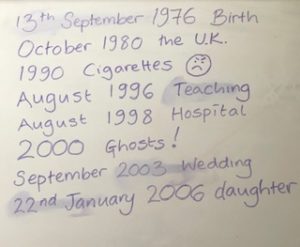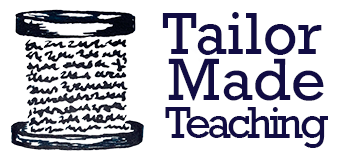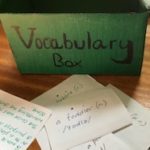The Life Game
NOTE: This ‘game’ has grown organically over the years as various teachers have made observations & contributions (I don’t claim sole authorship).
The Life Game is my favourite ‘getting to know you’ type activity because it:
- requires few resources
- is easy to set up
- is based on students’ real experiences
- is actually interesting
- is genuinely ‘bonding’ & establishes a nice class atmosphere
- gives me a good idea of the students’ speaking level/ability to communicate
- gives me a good idea of the students’ interests
- with adjustments can be made to work with any level post beginner.
- works well with one-to-one classes as well as larger groups.
- can last anywhere from 20 minutes to 1 1/2 hours with pre & post activities.
Set Up
- Put on the board one or more dates important to your life with one word describing the experience (NOTE: In one-to-one classes I’d board one date & save the others for the game itself. In larger classes put as many dates as you like). (ANOTHER NOTE: For me, and I guess most EFL teachers, it’s a big temptation to choose dates you moved to different countries, but the kinds of experiences you choose will set the tone for the students so try to choose experiences they may also have had e.g. with teens think about friendships, parties, schools, holidays, births of siblings etc., with adults use marriages, divorces, children, travel, jobs etc. ONLY USE DATES YOU ARE HAPPY TO TALK ABOUT!!!)

- Tell the class that these are important to you and encourage them to ask you questions about the dates. Board the types of questions they ask e.g. What happened on _____? Did you start teaching on ______? What did you do in ____?
- Answer the questions. Choose one of the dates and tell them your experience. Encourage any other questions. This is where you can add more question types e.g. Has anyone had a similar experience? Has anyone else been to…? What were you doing on this date? What were you doing while I was ….? If this had happened to you, would you do anything differently? etc.
- Give each student 6 slips of paper and ask them to write a date on each (can just write month or year if exact date is not known). STRESS that these must be experiences they’re happy to share with other students. (NOTE: 6 seems to be the optimum amount, there are always students who think they have fewer important dates and those who think they have more).
- Put students into groups of no more than 4. Give each group a dice and counter.
- Ask each group to put all their slips of paper into chronological order creating one playing board. (NOTE: It’s okay if there’s a range of ages in each group but this might make the question ‘What were you doing at this time?’ impossible for younger students to answer. However, it’s nice to have a range of experiences).
- Player 1 rolls the dice and moves the counter to land on a strip of paper. If it’s their own slip, they tell the group about the experience and then ask the group questions about similar experiences etc. If it’s someone else’s slip they should ask as many questions as possible. Or each person in the group must ask a question in turn until they run out ideas. (NOTE: With one-to-one classes I generally don’t use any rules, we just use the paper to start a conversation about the experience. We use the dice to add a random element to proceedings and keeps students on their toes as they don’t know whose date is next).
- When a date has been discussed, take the slip of paper away.
- When they reach the end of the board start again until time’s up or slips of paper are gone.
PRE/POST ACTIVITY
Teach vocab (words, phrasal verbs, collocations) about stages in life e.g. newborn, toddler, middle-aged, tween, adolescent, teenager, in your early/mid/late twenties/thirties, juvenile, minor, OAP, retired, elderly etc. whatever is appropriate for the level.
Get groups to make a kind of universal timeline e.g.
At what age do the following things happen in your country/did they happen for you/do you feel they happen for most people? Start school – start walking – start reading – start nursery – move school – college – university – first boy/girlfriend – marriage/cohabitation – first job – first house – leave home – first child etc.
POST ACTIVITY
Questions – Were there any experiences that surprised you?/Made you laugh?/Made you sad?/Were there any experiences your group had in common?
Writing – Write about the experiences of your group that you found most interesting (use reported speech) or write about one of your own experiences.





Leave a Reply
Want to join the discussion?Feel free to contribute!